It’s understood by parents everywhere that little kids will seek out the lowest, wettest and muddiest spot and spend their day trying to become part of it. It’s in our DNA — to search out these ditches, bogs, mudholes and ponds is a biological necessity.
As we get older, our watery haunts get more sophisticated. When once we were completely sated by rolling around in the mud left behind by a sprinkler left running just a bit too long, we eventually graduate to finding permanent bodies of water — drainage ditches, fetid urban ponds and dark-water streams that run near urban traffic arteries. We seek out the creepy and the crawly. We roll rocks and take pleasure in what we find beneath them.
As a kid in suburban Denver, our options were limited, but we did have them. We lived on a modest “parkway” — two one-way streets separated by a little free-flowing creek (really just a glorified city drain that collected everything from car bumpers and tires to the occasional vintage refrigerator). For us kids, it was simply called the “the ditch.” The ditch ran generally north for a few blocks before it emptied into a city pond that contained a host of hearty critters, from carp and bluegill to giant crawfish and, as most kids who lived on the ditch could attest, hungry leeches that could find bare skin and cling to it before you knew you were wet.
It was our low spot, our priceless little mudhole. And on summer days, the neighborhood kids could be found collecting crawdads in the ditch, dropping dough balls in the pond for carp and bathing our souls in all things muck.
Of course, my mother wasn’t a fan of the ditch, but she learned quickly that keeping me out of it wasn’t much of an option. What looked like a trickle of questionable water slicing between two ribbons of blacktop to most, was the ultimate source of adventure to me and my neighborhood friends. For a 7-year-old, the ditch was our Nile, its minnows were our trophy perch and its curious muskrats — every damned one of them had rabies, my mother made sure I understood — were it’s crocodiles. The riprap rocks that channeled the ditch into a predictable flow were its cliffs, and the little plunge pools created by the culvert lips as the creek passed under each intersection were our Victoria Falls.
Usually, the ditch ran slow and clear, even if the water did always seem to sport a slightly greasy film. But then, during the Colorado monsoon season, it would rain. The ditch became a torrent and we became real adventurers, river runners of the highest order. Everything that floated came out of neighborhood garages, and before parents had time to decline permission, we were already on to the forgiveness stage. I’ve never seen my father so angry as the time I took a snowsled from the rafters in the garage, buoyed by the belief that I could float it down the rain-swollen ditch. Not only did I lose the sled in the culvert of a nearby intersection, I got pitched from the craft and knocked my head pretty good on a rock.
I’ll never forget the horrified scream from my mother as I walked in the front door of our bi-level home soaked to the bone in gray ditchwater while holding my hand over a gushing head wound. A visit to the pediatrician and a few stitches later, I was no worse for wear.
But my dad was livid. By the time we got home, the rain had let up and the ditch wasn’t carrying as much steam as it had when it was at full-throated flow during the deluge. He grabbed me by the arm and marched me down to the intersection, and instructed me to crawl into the freshly douched culvert to retrieve the red plastic sled, my would-be African Queen.
Of course, I resisted with tears and terror — it’s one thing to see a rabid muskrat from a safe distance, but willfully crawling into their lair in search of a marooned snow sled … no thank you, sir. No. Thank. You.
But I had to “learn a lesson,” you know. I had to own my actions and take responsibility for them. I remember crawling into the corrugated culvert, it’s bottom coated in slippery algae, certainly on my way to face down a predatory, child-eating muskrat. I was the wildebeest trying to swim the river while the croc lay in wait.
Through tears, I looked back over my shoulder at my father. I could only make out his silhouette against the suddenly clear evening sky, the light of his flashlight shining in my face.
“Do you see it yet?” he asked, directing the beam beyond me into the endless chasm. “Do you see the sled?”
I turned and crawled deeper into the tunnel of doom, certain that my next steps would deliver me into the jaws of a rabies-ridden rodent, and that another trip the doctor was inevitable. If I survived, of course. I crawled a few more feet into the culvert, largely blind. My father’s flashlight beam couldn’t penetrate the blackness that seemed to go on forever. Then, I sobbed with relief as my hand touched the sled, a red plastic number that had managed to lodge itself against a mass of mud and grass.
“You got it?” My dad asked. I sobbed again, my hands gripping the sled furiously.
“I got it!” I shouted.
“Well, come on out. Mom’s got dinner ready.”
Just like that, the old man’s anger had shifted. I’d retrieved my sunken river craft, made up for my mistake. It would be nice to say I “learned my lesson,” but truth be told, as soon as I exited the culvert without having my face eaten off by a muskrat, I was already doing that algebra that fearless 7-year-old adventures do, and trying like hell to figure out why the sled, which floated just fine with nobody in it sunk like a rock the second I boarded the vessel. I reached up and felt the bandage on my forehead. Surely there was a lesson to be learned, but I was struggling to figure out what it was.
That night over salmon loaf — my mother dependably cooked about a dozen dishes over the course of my childhood, and salmon loaf was a recurring item on the menu — I remember concocting the next day’s adventures and trying to figure out what would, indeed, float with me in it.
My dad, I recall, described the retrieval of the sled and talked a lot about how I’d learned my lesson. I’d show him. I lived on the ditch. As a kid, adventure topped lessons at every turn.
Maybe, I thought, if I got lucky, it would rain again.




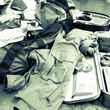
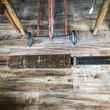
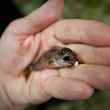
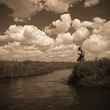
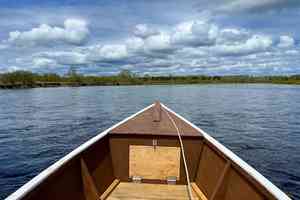


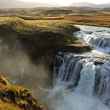
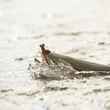
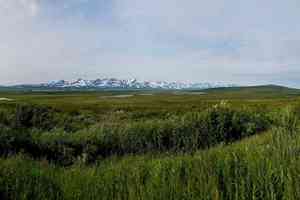

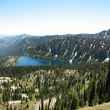
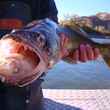
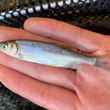



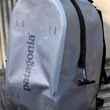
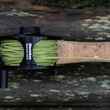



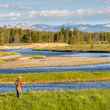
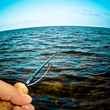
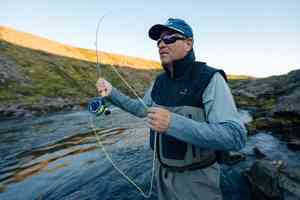

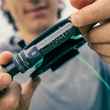
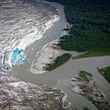
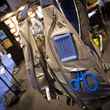
Comments